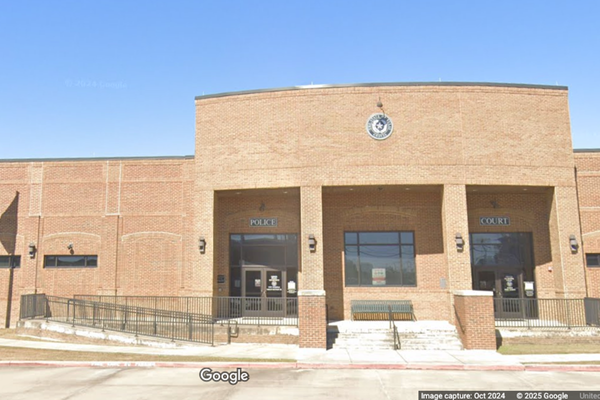
On the campaign trail, Donald Trump repeatedly disavowed Project 2025, saying he had “nothing to do” with the blueprint for a conservative presidency and didn’t know the people behind it. But as he starts to assemble his cabinet and White House staff, it seems likely he’ll get to know the people involved very well soon.
Trump’s attempts to disavow the project before winning re-election seemed improbable, given that it was written by various members of his first administration and aligned on policy goals with his own proposed second term agenda.
His transition team claimed it would not hire any people associated with Project 2025 because it was “radioactive”.
But, in his selections for key roles, he has already tapped people with direct ties to the rightwing manifesto.
James Braid
Braid, chosen by Trump as the director of the Office of Legislative Affairs, taught a course as part of Project 2025’s leadership training program, one of the four pillars in the project’s plan.
The course is called “Congressional Relations: How to Work with Members” as part of a conservative governance certificate program. The program was designed to teach potential appointees how to “develop a comprehensive understanding of how to advance the President’s agenda”.
Brendan Carr
Trump’s nominee to chair the Federal Communications Commission wrote the chapter on the FCC in Project 2025.
In the chapter, Carr advocates for “reining in big tech”, in part by limiting the immunity tech platforms have from content posted by third parties. He specifically mentions abuses by Google, Meta and YouTube as examples of platforms requiring such reining in.
Monica Crowley
Crowley, named by Trump for a state department role including chief of protocol, is listed as a contributor to Project 2025, though it’s not clear what her exact contribution entailed. Her name is listed in Project 2025 alongside the Nixon Seminar, of which she is a member. The seminar is a monthly gathering that “reasserts and advances the visionary international policies rooted in conservative realism that President Nixon brought to fore”.
Pete Hoekstra
Trump’s pick for ambassador to Canada is listed as a contributor to Project 2025 in the “Mandate for Leadership” document, though it’s not clear what his contribution entailed.
Tom Homan
Homan, chosen as Trump’s “border czar”, is listed as a contributor to Project 2025, though his name is not listed on any specific chapter or policy ideas.
He also worked as a visiting fellow at the Heritage Foundation. He penned op-eds, promoted by Heritage, that attacked the Biden administration over immigration and panned the bipartisan immigration deal. He wrote in one op-ed that “race-baiting Democrats” had called him names when he led Ice.
Karoline Leavitt
The incoming White House press secretary, Karoline Leavitt, appeared in training videos for Project 2025. In addition to the policy manifesto, the project’s four pillars involved amassing a database of potential employees and creating a training program for conservatives who wanted positions in a rightwing presidency.
In a video called “The Art of Professionalism”, obtained by ProPublica and Documented, Leavitt talks about her advice for people who would serve as staff. While she was the national press secretary for Trump’s campaign, she claimed the project had nothing to do with Trump.
She also appears in a promotional video for the project.
Stephen Miller
Stephen Miller will be back in the White House, this time as deputy chief of staff for policy. He is the president of the America First Legal Foundation, a legal attack dog non-profit for rightwing causes.
America First Legal was listed as a supporter of Project 2025 and appeared as a member of the project’s advisory board, though the group then asked to be removed from it. Miller also appeared in a promotional video for the project, which is still posted on the project’s website.
Peter Navarro
Navarro was named by Trump as a senior counselor for trade and manufacturing, and he spent time in prison for refusing to cooperate with the congressional inquiry into the January 6 insurrection.
He authored a chapter for Project 2025 called “the case for fair trade”, part of a dueling chapter on trade policy in which he argued for tariffs and restrictions while other conservatives argued for free trade. The chapter details plans to counter China via trade policy, which is likely to be part of Trump’s agenda.
“The obvious political problem in adopting many of the policies proposed here is that they will be opposed by the special-interest groups that benefit from open borders and offshoring and that contribute lavishly to both political parties,” Navarro wrote of the trade plans he suggested in the chapter. “These special-interest groups range from the hedge funds of Wall Street and tech entrepreneurs of Silicon Valley to big-box retailers that stuff their aisles particularly with cheap ‘Made in China’ goods.”
John Ratcliffe
Ratcliffe, offered the role of CIA director by Trump, was a visiting fellow at the Heritage Foundation, where he was tasked with chairing a project to hold China accountable for Covid-19 and “helping Project 2025 build out policy recommendations for intelligence reform in the next presidential administration”, according to the Heritage website.
Ratcliffe is listed as a contributor to Project 2025. He also is interviewed for the project, and excerpts of the interview went into a chapter on the intelligence community. In the chapter, Ratcliffe is quoted multiple times, on issues such as making sure the intelligence community is accountable to the director of national intelligence and on countering China.
“I had an $85bn combined annual budget for both the national intelligence program and military intelligence program,” he is quoted in Project 2025. “My perspective was, ‘Whatever we’re spending on countering China, it isn’t enough.’”
JD Vance
Trump’s vice-president has close ties with Roberts, the Heritage president. Vance wrote the foreword for Roberts’s book, which was released after the election.
Roberts “is somebody I rely on a lot who has very good advice, very good political instincts”, Vance told news outlet Notus in January 2024. In the foreword, Vance praises Roberts’s ideas and boldness, saying the book advances a “fundamentally Christian view of culture and economics” and a “surprising – even jarring” path forward for conservatives.
Russ Vought
Vought, the founder and president of the Center for Renewing America, wrote a chapter for Project 2025 focused on the role of the president’s office. He is seen as one of the project’s key contributors. His organization is also on the project’s advisory board.
Trump picked Vought to be the director of the US Office of Management and Budget, reprising the role Vought played in the first Trump administration.
In the chapter, Vought rails against the supposed deep state of federal civil servants, saying agencies have too much power that needs to be curtailed. He offers suggestions for various ways the president’s office and staff positions can be used to quickly install the president’s priorities and loyalists.
“The President must set and enforce a plan for the executive branch,” Vought wrote. “Sadly, however, a President today assumes office to find a sprawling federal bureaucracy that all too often is carrying out its own policy plans and preferences – or, worse yet, the policy plans and preferences of a radical, supposedly ‘woke’ faction of the country.”







